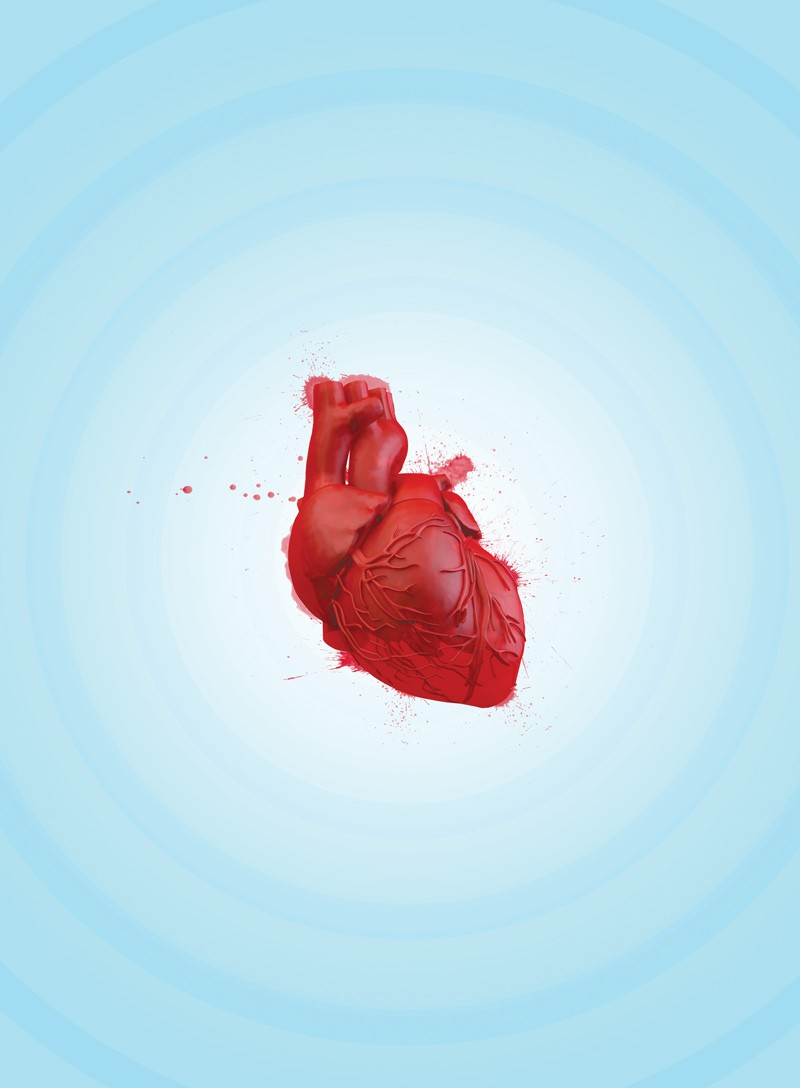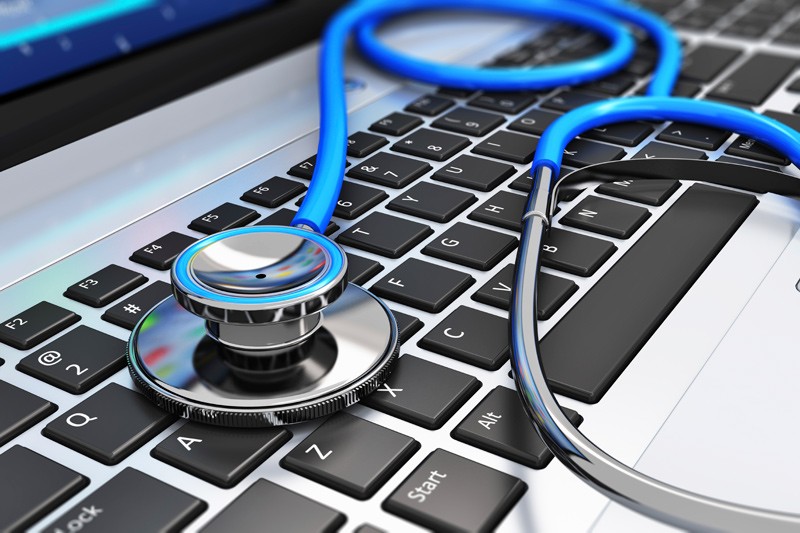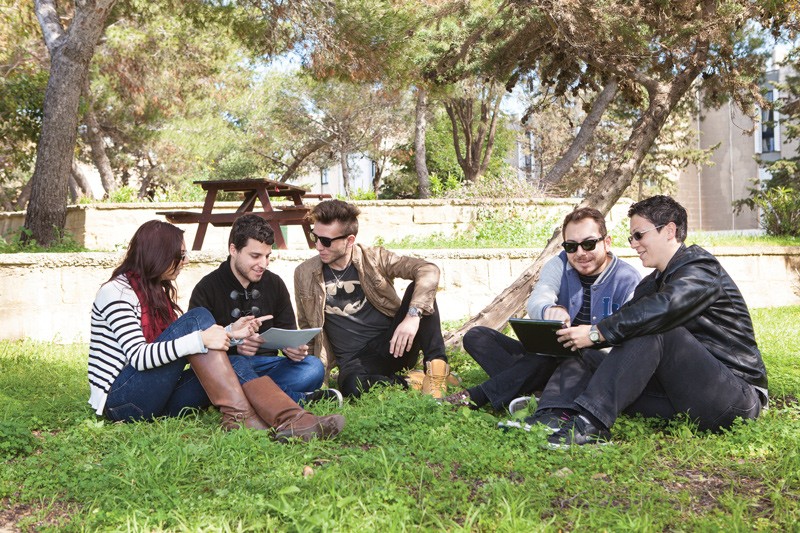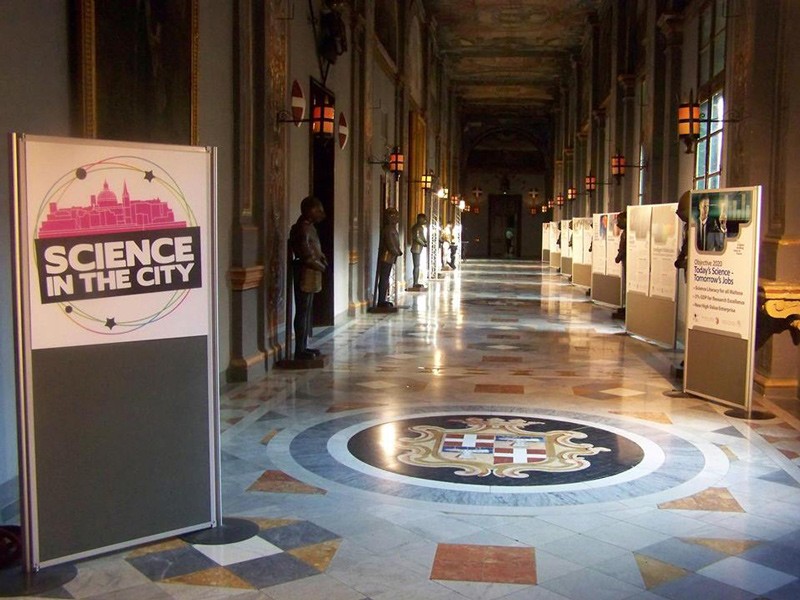Think ICT in Health Care
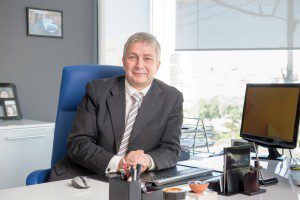
I have been directly involved in ICT for over 30 years. The last 10 years have been all dedicated to ICT in health.
I have visited hospitals and health centres in the United States, Canada, the United Kingdom, Ireland and Italy. During the several health conferences I have attended, I met with people from practically every corner of the world. Their common denominator: no health system is sustainable unless ICT is perceived as an enabler to assist health providers deliver an improved and more efficient care service that governments can afford.”Malta shares this concern. The added pressure is its ageing population.
Q:How can ICT truly reduce the financial pressures on our Health Service and make it sustainable?
A:Malta needs to develop a culture where citizens realise their responsibility to monitor their own health and maintain their own online electronic medical record. This can be done through daily, weekly or monthly monitoring of vital signs such as blood pressure, weight and others. Studies prove that people using eMonitoring services take better care of their own health.
I urge the Ministry of Health to run a simple pilot project in Malta. It could be run amongst the diabetic community. The pilot project would include 1,000 people. 500 of them will use the standard glucose-monitoring device while the other 500 will use a personal, electronic glucose-monitoring device. Within three to six months the results will show the superiority of eMonitoring devices for patient care. These existing health tools can enable people to live healthier lives and stay away from our overburdened hospital. The key is to control a condition without depending on medicines.
Q:Length of stay in hospitals and outpatient visits can be reduced through eMonitoring devices. How?
A:How many patients remain in hospital after medical intervention to have their vital signs monitored? Using these devices patients can be discharged from Mater Dei sooner by being given an eMonitoring kit to monitor themselves from home. The data would be sent electronically to Mater Dei for doctors or clinicians to analyse. These devices could reduce the patient length of stay and make more beds available at Mater Dei translating into reduced costs and waiting lists. They could alleviate the number of outpatient visits that would reduce pressure on the infrastructure and workforce providing more time to increase care quality. Such devices provide an opportunity for every Maltese citizen to have an online electronic medical record that would be always available to clinicians and general practitioners.
My vision for the Maltese health service is one of empowerment. The patient will be enabled to take better care of him or herself and become more accountable, disciplined, and committed to self-healthcare in the same way someone is committed to their job or hobby.
Ivan Bartolo is the Chief Executive Officer of 6PM, a leading IT company delivering award-winning health care products. emCare, a subsidiary of 6PM, provides eMonitoring services. For more information visit www.6pmsolutions.com and www.emcare360.com
Social Wellbeing Policy at University?
University can be incredibly stressful. Staff perform high level work with plenty of academic responsibilities, while balancing a private life and leisure time. The number of students at University is rising every year. For academic and support staff this means a more intensive workload, pressure, and stress. For students it is the pressure of attaining good results, maintaining relationships, and other social and emotional wellbeing issues, such as coping with peer pressure, struggling with deadlines, and worries about the future. Numerous studies suggest that examinations negatively impact on student health and wellbeing. Some coping strategies and time management programmes have evolved at the University of Malta, for example by the University Chaplaincy. Such well-meaning initiatives are good and do good, but tend to happen sporadically and around examination time.
Many University of Malta students balance multiple identities. They often fall outside the typical demographic of an 18-year-old sixth form school leaver. Our students come from diverse socio-economic backgrounds, and may be studying full-time or part-time, with a variety of life roles: mature students, women with care responsibilities, persons challenged by disability or facing problems due to sexual orientation. Whatever the situation in life, each diverse identity places increased demands upon the students’ time and private life. These demands influence their University experiences, study perceptions, and learning style. Their peers might treat them differently due to their background.
“A social wellbeing policy will help foster confidence in its approach to academic learning, and to eliminate discrimination in favour of a more inclusive learning environment”
Besides worries about assignment deadlines and writing exams, many students are also in employment. I am not sure this trend is in line with University of Malta regulations, nevertheless, that is the situation. Students also worry about future prospects with no guarantee of secure employment after finishing their studies. So it is not only academic concerns that come in the way of student social wellbeing, and these may lead to high levels of stress, anxiety or frustration, depressed mood, difficulties with time management, procrastination, poor concentration, withdrawal from friends or family, or physical symptoms such as headaches, sleep problems, and exhaustion. University life presents numerous stress factors that may trigger off mental health difficulties.
Students experiencing stress are normally recommended psychological intervention and counselling, which may be beneficial for extremely stressed students. However, research suggests that physical activity helps improve mental health and wellbeing. The University of Malta, through its Work Resources Fund, promotes cycling through the Green Travel Plan. The initiative is more about sustainability and the environment, apart from a solution to the parking problem. However, cycling does improve our mental health and wellbeing, and is a free personal de-stressor by taking our mind off work or study, and leads to healthier lifestyle choices. 
A social wellbeing policy for University will help foster confidence in its approach to academic learning, and to eliminate discrimination in favour of a more inclusive learning environment. Indeed, the principles of equality and diversity such as gender or disability are essential for a true understanding of social wellbeing, and these same principles need to be included in our University’s policy document and implemented in practice. Diversity in a dynamic, intellectual environment enriches professional and educational experiences for both staff and students.
Diversity on campus is needed and important for a healthy University. Internationally, social wellbeing on campus is being promoted through an organisational structure embedded into the ethos, culture, policies, and daily practices of a university. A social wellbeing policy includes an improved occupational health and safety system, and a commitment to address mental wellbeing, physical inactivity, unhealthy eating and substance misuse. The University needs constant commitment to positively influence the life and work of all staff and students.
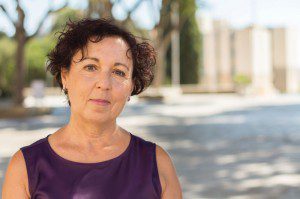
The University is encouraged to guard the integrity of its communication system. Collaboration and open communication fosters conversations and relationships necessary to bring about social wellbeing. The communication process needs to be trusted and confidential for team spirit and social wellbeing. For instance, I would strongly argue for an email policy that discourages unnecessary use of bcc in emails, as the practice of not telling the original addressee is unethical and downright deceitful.
The University of Malta could establish itself as a national contact point on the European Network for Health Promoting Universities (see www.eurohpu.aau.dk). It would commit the University to place social wellbeing high on its policy agenda. A working document published by the World Health Organisation Regional Office for Europe provides guidance on how to set up and develop a health-promoting university project, which would enhance and protect the social wellbeing of all staff and students.
Finally, I would also suggest an exploratory research study about aspects of university life, stress factors in teaching and learning activities, and how these impact on individual experiences. The aim is to understand the general quality of life, and how this can be improved for an informed social wellbeing policy document at the University of Malta.
This article is based on a paper Camilleri-Cassar presented at a seminar organised by the Faculty for Social Wellbeing in October 2013.
Read more here:
– Carroll, A. (2011) ‘Exploring the link between equality, diversity and wellbeing.’ In Marshall, L. and Morris, C. (eds) Taking Wellbeing Forward in higher education: reflections on theory and practice, University of Brighton Press.
– Hagarthy, D. and Currie, J. (2012) ‘The Exercise Class Experience: an opportunity to promote student wellbeing during the HSC’, Journal of Student Wellbeing, vol. 5(2):1-17.
– Hall, C., Ramm, J. and Jeffery, A. (2011) ‘Developing the University of Brighton as a Health Promoting University: the story so far.’ In Marshall, L. and Morris, C. (eds) Taking Wellbeing Forward in higher education: reflections on theory and practice, University of Brighton Press.
– UniHealth 2020: Mission Statement, www.eurohpu.aau.dk
Science and Politics
Think meets up with Dr David Magri to tell us more about how he is trying to help scientists and politicians to network. Evidence-based policies need the input of scientists from all fields and are the future for Malta’s policy makers to develop a better, richer, and happier Malta.
Q: In a small country like Malta were everyone knows each other, why do scientists and politicians need to network?
A: Even in a small country like Malta, people do not know everybody. In particular, scientists and politicians are two groups of individuals with busy schedules and different priorities. Because of the inherent nature of their professions, these two groups have no natural reason to meet. Scientists spend a considerable amount of time in their office, laboratory, in meetings, out on fieldwork, and at conferences. Politicians spend a substantial amount of time in their office, in the House of Parliament, at meetings, events, and attending conferences. However, for the nation’s interests, science and research policy is important for future competitiveness with regards to technical skills and human resources. Parliamentarians and governments set the national priorities for research, but researchers need to meet these research objectives. Researchers have a better understanding of what is feasible and what resources are needed.
“Scientists and politicians are two groups of individuals with busy schedules and different priorities”
Q:How are you trying to get them to engage?
A: The Malta Chamber of Scientists has established Science in the House as a networking forum between scientists and parliamentarians. Under the auspices of the House of Representatives, Science in the House is also a poster exhibition highlighting some of the leading research conducted in Malta, particularly at the University of Malta. Now in its third year, the event continues to build momentum with greater participation every year. It takes place in the Presidential Palace in Valletta. This year a number of parliamentarians with science-related interests and backgrounds have been asked by personal invitation to attend the opening ceremonies of Science in the House.
Q:What is the role of Science in the House as part of Science in the City – European Researcher’s Night?
A: Science in the House is the opening ceremony for the Science in the City festival. During the weekend festival the Presidential Palace is open to the public in the evening. The poster exhibition is left on display for parliamentarians to view, and afterwards left on display over the Notte Bianca festival allowing the general public including students, parents, and tourists to view the exhibition. During the week an estimated 6,000 visitors viewed the exhibition last year.
Part of Science in the City, Malta’s Science and Arts Festival
For more stories click here
The event is supported by the Malta Chamber of Scientists, the RIDT University Research Trust, the University of Malta and the House of Representatives. For more information see
www.mcs.org.mt/index.php/events and on www.scienceinthecity.org.mt

